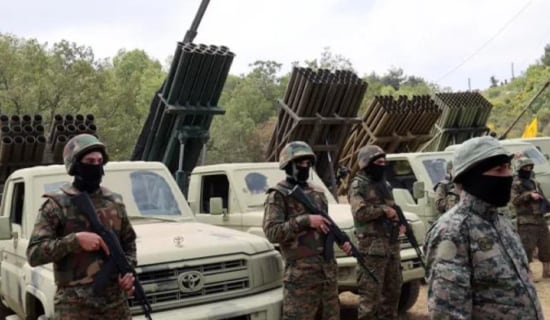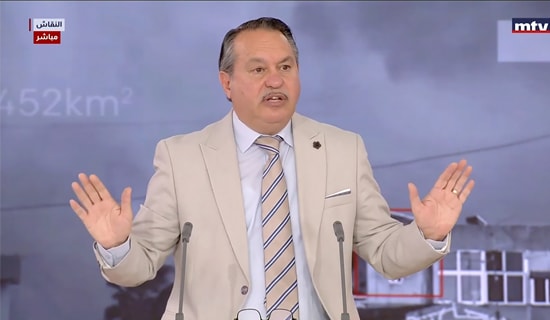Recently we at MEMRI hosted a delegation from the Kingdom of Bahrain at our main offices in Washington, D.C. Briefing visitors is a regular thing we do and the Bahraini group came the same week as a delegation of international students from a major American university and another one from one of uniformed service schools.
The Bahrain delegation was different. Ostensibly a private group, it came accompanied by a camera crew and photographer from the Bahrain state media and a handler from the Bahrain government. Although most Bahraini are Shi'a Muslims, the delegation was assembled to give an impression of remarkable diversity and included a Hindu priest, an Anglican cleric, a Coptic priest and a handful of actual Bahrainis among a mostly expat crew.
The meeting proceeded as these sessions tend to do, with MEMRI explaining our work of translation and analysis of the voices and images of the region and how we see the multiple crises and challenges affecting the region. The comments of "This is Bahrain," which is what the group calls itself in the form of its leader, an expat lady businesswoman, were a bitodd. Instead of a dialogue about serious matters - say, for example, the challenge of Salafi jihadist extremism (the most prominent ISIS cleric is a Bahraini[1]) or of Iranian subversion in the Gulf, or of the challenges of sectarianism - we heard a potted public relations song and dance guaranteed to deceive only the unwary.
"Did you know that Bahrain has, unlike the United States, generous maternity leave?" Or that the King subsidizes Shi'a Ashura celebrations and is building the largest Cathedral in the Arabian Peninsula? One could only recall how miserable third world dictatorships like Cuba boast of their healthcare to distract attention from their lack of basic freedoms or how Russian President Putin recently inaugurated a giant mosque in Moscow in order to try to present a certain message through a projection of religious architecture.
As the meeting ended, the expat lady leader mentioned in passing the idea of signing a Memorandum of Understanding (MoU). We responded diplomatically that this is something that can be talked about in the future, particularly about what exactly would such a MoU possibly be about. MEMRI has no MoUs with any governments and is an independent research institute.
Imagine our surprise the next day when we saw public remarks from this expat businesswoman that MEMRI had signed a MoU with Bahrain![2] An idea suddenly raised by one individual is transmogrified into a signed document? A photo from the same MEMRI meeting was used to illustrate the supposed signing of still another MoU, this time with a Washington D.C. synagogue.[3] It is not clear whether that was also an imaginary signing or perhaps it was an imaginary synagogue.
Despite our complaints to the organizers of this visit, and to the media in Bahrain that has carried this false story, it has slowly spread. From the regime-controlled media in Manama, the item was featured in the popular Middle East news aggregator, Al-Bawaba.[4] It was perhaps inevitable that the false story was now picked up by Middle East Eye, a UK-based outfit supposedly connected to the Muslim Brotherhood.[5] Respected UAE commentator Khalaf Al-Habtoor dubbed it "one of the Muslim Brotherhood's UK-based propaganda rags."[6]
It would be easy to chalk this farcical incident up to the frantic efforts of an expat businesswoman clumsily and dishonestly trying to correct the extremely negative image of her adopted homeland.[7] But it is clear that the "This is Bahrain" roadshow is an attempt at public diplomacy embraced by the Manama government.[8] The problem it reveals is a larger one not limited to this particular island kingdom in the Middle East.
The crisis of authority in the Middle East, the great shaking and unraveling in the Middle East supposedly unleashed by the Arab Spring but actually long in coming has terrified dynasties to their core. The rise of the Islamic State, the increased tempo of Iranian-supported military action and terrorism, and the seemingly near complete abdication by the United States of its leading role in the region have all worked on the calculations of existing regimes. Elites rally around authority in such times.
Gone are, in all too many cases, the faltering steps at much needed reform and openness. Regimes feel threatened existentially and intimately and respond, not by prioritizing reform or change, but by increasing repression and, in the world of the media, by making the lie and the gap between reality and the truth greater rather than lesser. This is a dangerous, high-stakes, short-term, and even reckless strategy, in Bahrain and beyond.
*Alberto M. Fernandez is Vice President of MEMRI.
[1] http://mirror.no-ip.org/news/20325.html
[2] http://www.gdnonline.com/Details/25019
[3] http://www.dt.bh/viewNews.php?ppId=6213&TYPE=Posts&pid=55&MNU=18&SUB=
[4] http://www.albawaba.com/business/charm-offensive-bahrain-public-image-roadshow-hits-us-748128
[5] http://www.thenational.ae/uae/al-jazeera-executive-helped-to-launch-controversial-uk-website
[6] http://www.mepc.org/articles-commentary/commentary/uk-extremists-utopia?print
[7] https://www.hrw.org/middle-east/n-africa/bahrain
[8] http://www.vice.com/en_uk/read/hanging-out-with-western-sycophants-at-the-this-is-bahrain-conference








